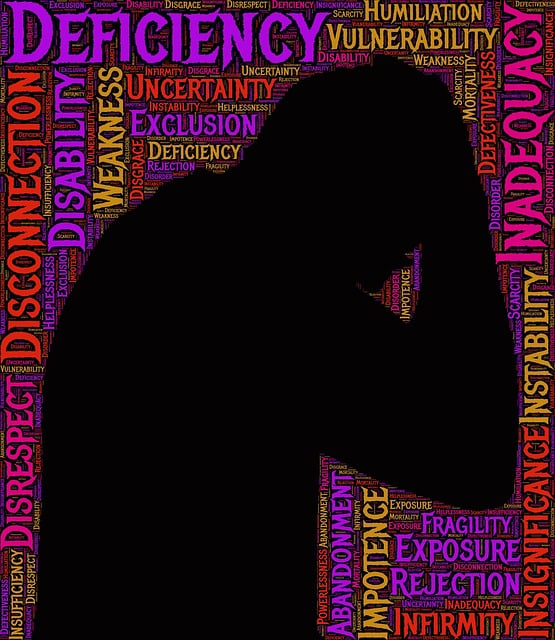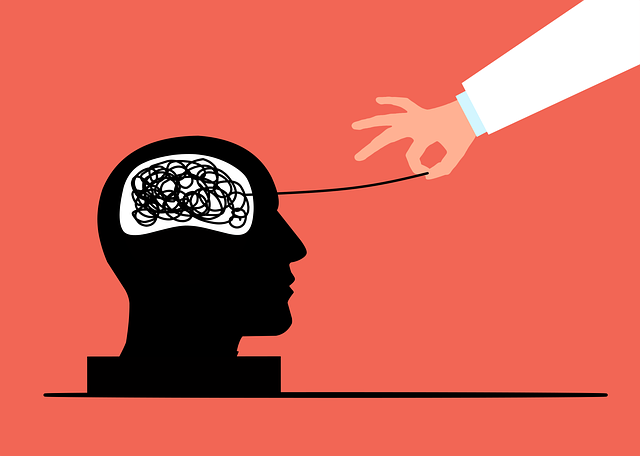Emotional intelligence (EI) is crucial for young adults navigating life transitions, stress, and relationships. Therapy for Young Adults, like Somatic Experiencing (SE), offers structured programs combining stress management, mental health education, and social skills training to enhance EI development. SE, a unique approach focusing on body-emotion connections, helps individuals process traumatic events and manage intense feelings through self-awareness exercises. By cultivating resilience with mindfulness, journaling, and creative expression, young adults can strengthen their EI capabilities for improved mental health and fulfilling life trajectories. Integrating therapy into daily routines, such as participating in SE workshops or cultural sensitivity programs, empowers them to navigate challenges and foster meaningful connections. Success stories attest to the game-changing effects of Somatic Experiencing in boosting EI and overall well-being.
Emotional intelligence (EI) is a powerful tool for young adults navigating today’s complex world. This article explores the transformative power of EI, focusing on its profound impact and practical application in daily life. We delve into the science behind EI through Somatic Experiencing, providing insights into enhancing emotional awareness. Discover actionable strategies to build EI skills, and learn how therapy seamlessly integrates with daily routines for young adults seeking personal growth. Real-life success stories highlight the challenges overcome when EI is cultivated.
- Understanding Emotional Intelligence and Its Impact on Young Adults
- The Role of Somatic Experiencing in Enhancing Emotional Awareness
- Practical Strategies for Developing Emotional Intelligence Skills
- Integrating Therapy into Daily Life: A Step-by-Step Guide for Young Adults
- Real-Life Success Stories: Overcoming Challenges with Improved Emotional Intelligence
Understanding Emotional Intelligence and Its Impact on Young Adults

Emotional intelligence (EI) is a key factor in shaping the lives of young adults, impacting their interactions, relationships, and overall well-being. It involves recognizing, understanding, managing, and effectively utilizing emotions – both one’s own and others’ – to navigate through life’s challenges and opportunities. For young adults, who are often navigating significant transitions, identity formation, and social dynamics, developing EI can be transformative.
Therapy for Young Adults, such as Somatic Experiencing, plays a crucial role in fostering emotional intelligence. Through structured programs focused on stress management, mental health education, and social skills training, young adults learn to identify and process their emotions healthily. This not only enhances their ability to cope with everyday stressors but also prepares them for building resilient relationships and pursuing meaningful careers. By investing in these areas, young adults can better understand the impact of their actions on themselves and others, leading to improved mental health and a more fulfilling life trajectory.
The Role of Somatic Experiencing in Enhancing Emotional Awareness

Somatic Experiencing (SE) is a powerful therapy for young adults that goes beyond traditional talk therapy. This approach emphasizes the connection between the body and emotions, helping individuals develop deeper emotional awareness. SE is particularly effective in crisis intervention guidance, providing tools to navigate intense feelings and manage stress. Through various self-awareness exercises, clients learn to recognize physical sensations associated with different emotions, fostering a more nuanced understanding of their internal experiences.
By engaging with SE, young adults can enhance their ability to process traumatic or stressful events, leading to improved emotional regulation skills. This therapy encourages individuals to explore and express their feelings in safe, controlled environments, ultimately reducing the impact of past traumas. As part of comprehensive stress management workshops organized by like-minded organizations, SE offers practical strategies for coping with daily stressors, promoting resilience, and enhancing overall well-being.
Practical Strategies for Developing Emotional Intelligence Skills

Developing emotional intelligence skills is an ongoing process that requires dedication and practice. One effective strategy is incorporating somatic experiencing techniques, a therapy for young adults that focuses on the connection between the mind and body. By learning to recognize and manage physical sensations related to emotions, individuals can enhance their self-awareness and develop healthier coping mechanisms. This approach, often explored in mental wellness podcast series production, allows one to understand and process complex feelings more effectively.
Additionally, cultivating resilience is vital for emotional intelligence growth. Building resilience involves adopting healthy coping skills development strategies to navigate life’s challenges. Activities such as mindfulness meditation, journaling, or engaging in creative pursuits can help individuals process emotions constructively. These practices not only contribute to mental wellness but also foster a deeper understanding of one’s emotional landscape, ultimately strengthening emotional intelligence.
Integrating Therapy into Daily Life: A Step-by-Step Guide for Young Adults

Integrating therapy into daily life can be a transformative journey for young adults seeking to enhance their emotional intelligence. Start by setting aside dedicated time each week for self-reflection and processing emotions, much like establishing a workout routine. Choose a therapeutic approach that resonates, such as Somatic Experiencing, which combines body awareness with mindfulness to process traumatic memories or intense emotions.
Personalize your practice, incorporating cultural sensitivity learned from diverse mental healthcare experiences. Engage in mental health education programs designed to teach coping mechanisms and stress reduction methods. Through consistent commitment, you can develop a robust emotional intelligence framework that equips you to navigate life’s challenges, foster meaningful connections, and cultivate overall well-being.
Real-Life Success Stories: Overcoming Challenges with Improved Emotional Intelligence

Many real-life success stories highlight the transformative power of emotional intelligence (EI) in overcoming challenges. Young adults, in particular, have benefited from incorporating EI into their lives, as evidenced by those who have sought therapy and embraced practices like Somatic Experiencing. This approach focuses on understanding and regulating emotions, which is crucial for mental health awareness and overall well-being.
By enhancing their EI, individuals have learned to manage moods more effectively, fostering emotional healing processes that extend far beyond the therapy room. These experiences demonstrate that by cultivating self-awareness, empathy, and resilience, one can navigate life’s complexities with greater ease, ensuring a more fulfilling and balanced existence.
Emotional intelligence is a powerful tool that can significantly enhance young adults’ lives, fostering healthier relationships and improved mental well-being. By understanding the impact of emotional intelligence and exploring practical strategies, such as those offered by Somatic Experiencing and therapy integration, individuals can embark on a journey of self-discovery and growth. These techniques empower young adults to navigate life’s challenges with greater resilience and empathy. With dedication and the right tools, building emotional intelligence becomes an accessible path to personal transformation, leading to a more fulfilling future.














